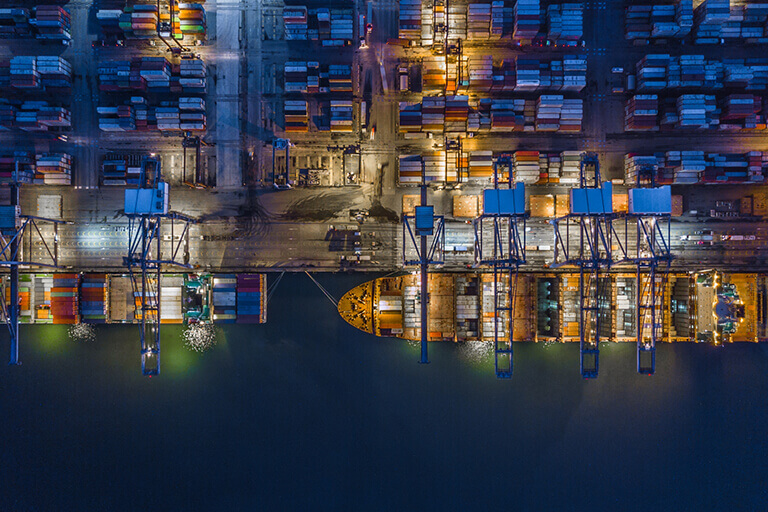4 Ways Small Businesses Can Thrive In A Post-Pandemic World
Consumers expect more personalized delivery services. Here’s how SMEs can meet their expectations and build a resilient and sustainable future.
For small businesses to succeed in this evolving landscape, it’s essential to have a pulse on the trends and changes that have emerged in your target markets.
As one of the world’s largest express transportation companies, we continue to closely analyze the changes in the industry, especially in Asia. The pandemic brought unprecedented challenges, but it also highlighted an increase in demand for flexible, and personalized deliveries. This accelerated the transformation of the logistics industry, presenting opportunities for logistics providers like us to help small businesses thrive.
Amidst the geopolitical tensions, climate crisis and economic uncertainties, businesses big and small are facing challenges such as record-high inflation, supply chain disruptions, and energy shortages. Due to economies of scale, these can have a larger impact on SMEs. These challenges can get magnified due to lack of funding, resources, and expertise.
This doesn’t mean that SMEs should throw in the towel. Plenty of support remains for SMEs from venture-capitalists and global investment funds, particularly in Southeast Asia. There’s also the Regional Comprehensive Economic Partnership, the world’s largest free trade agreement that covers about a third of the world’s economic output. SMEs in the participating 15 countries – Australia, Brunei, Cambodia, China, Indonesia, Japan, Laos, Malaysia, Myanmar, New Zealand, the Philippines, Singapore, South Korea, Thailand, and Vietnam – can take advantage of the enhanced tariff concessions, uniform system facilitating paperless trading, and digitalized solutions such as electronic signatures and digital authentication.
As one of the world’s largest express transportation companies, we continue to closely analyze the changes in the industry, especially in Asia. The pandemic brought unprecedented challenges, but it also highlighted an increase in demand for flexible, and personalized deliveries. This accelerated the transformation of the logistics industry, presenting opportunities for logistics providers like us to help small businesses thrive.
Amidst the geopolitical tensions, climate crisis and economic uncertainties, businesses big and small are facing challenges such as record-high inflation, supply chain disruptions, and energy shortages. Due to economies of scale, these can have a larger impact on SMEs. These challenges can get magnified due to lack of funding, resources, and expertise.
This doesn’t mean that SMEs should throw in the towel. Plenty of support remains for SMEs from venture-capitalists and global investment funds, particularly in Southeast Asia. There’s also the Regional Comprehensive Economic Partnership, the world’s largest free trade agreement that covers about a third of the world’s economic output. SMEs in the participating 15 countries – Australia, Brunei, Cambodia, China, Indonesia, Japan, Laos, Malaysia, Myanmar, New Zealand, the Philippines, Singapore, South Korea, Thailand, and Vietnam – can take advantage of the enhanced tariff concessions, uniform system facilitating paperless trading, and digitalized solutions such as electronic signatures and digital authentication.

Consumers want personalized, on-time delivery
One of the key trends we’ve observed in the industry is the demand for time-definite deliveries. This is largely due to the rapid growth in the global e-commerce market, which is expected to increase to US$5.4 trillion by 2026.
As small businesses are ushered into the world of e-commerce, logistics providers can play a crucial role in helping them navigate this transition. This involves providing support in building e-commerce infrastructure, such as warehousing and fulfilment centers, and offering technology solutions that streamline the process of managing and fulfilling orders.
Our e-commerce white paper found that consumers were looking for personalization, shoppertainment, and payment options to improve their online shopping experience. This includes businesses offering various choices with emphasis on convenience.
One of the key trends we’ve observed in the industry is the demand for time-definite deliveries. This is largely due to the rapid growth in the global e-commerce market, which is expected to increase to US$5.4 trillion by 2026.
As small businesses are ushered into the world of e-commerce, logistics providers can play a crucial role in helping them navigate this transition. This involves providing support in building e-commerce infrastructure, such as warehousing and fulfilment centers, and offering technology solutions that streamline the process of managing and fulfilling orders.
Our e-commerce white paper found that consumers were looking for personalization, shoppertainment, and payment options to improve their online shopping experience. This includes businesses offering various choices with emphasis on convenience.

Consumers expect reliable and affordable delivery services
In addition to supporting the e-commerce needs of small businesses, logistics providers can also help them meet the heightened consumer expectations for reliable, and affordable delivery services. This includes offering a range of delivery solutions such as time-definite delivery or flexible timings that mitigates risks to the customer.
At FedEx, we know how important it is to support businesses in meeting their customer’s needs. By providing various flexible solutions, we enable businesses to cater to this growing demand.
In Asia Pacific, FedEx International Economy® gives customers day-definite delivery and connects them to 170 markets worldwide. Orders are delivered within two to five business days in APAC, and four to five business days for major markets in Europe and the US. Services like FedEx International Connect Plus – an e-commerce service with competitive speed and prices, help serve customers better and fuel businesses growth. In Singapore, we’ve also expanded our delivery network by teaming up with the Pick locker network, which has over 1,000 locations, to offer customers greater convenience and flexibility in terms of where and when they can receive their parcels.
Improving customer experience through data-driven innovations
Over the last few years, advancements in technology, the availability of sensor tracking for shipments, and automation have allowed logistics providers to use predictive intelligence to better serve their customers. This in turn creates even more value for customers, as more resources are made available to allow adaptation to shifting consumer demands.
As a global logistics company, we take a data-driven approach and continuously invest in innovations and new technology that echoes broader industry trends. For example, our analytics center in Singapore works closely with FedEx Dataworks to constantly improve the customer and courier experience. Internal operations are then optimized based on the insights gained from analytical methods such as machine learning and artificial intelligence, which allows us to foresee potential issues and recommend innovative solutions in near real-time.
Leverage technology to deliver what’s next
We also use technology to enable personalization of deliveries to optimize delivery efficiency. For example, the integration of WhatsApp into FedEx® Delivery Manager, an e-commerce delivery tool that increases efficiency by providing customizable delivery options and alerts, helping reduce missed deliveries. E-tailers using FedEx® Delivery Manager can offer customers the ability and flexibility to pick the timing and location of their deliveries to fit their schedule and change the delivery address even when the shipment is already in transit. Customers can also easily track packages on their mobile phone.
Logistics providers have a crucial role to play in helping small businesses overcome challenges and thrive in this post-pandemic world. Besides offering support in the e-commerce process, we can also encourage sustainability and resilience in supply chains, access new markets, and provide personalized customer service.
At FedEx, we’re here to help SMEs adapt to these unprecedented times, overcome challenges head on, and help build a more resilient and sustainable future for all.
To find out more tips and insights for SMEs, click here.
In addition to supporting the e-commerce needs of small businesses, logistics providers can also help them meet the heightened consumer expectations for reliable, and affordable delivery services. This includes offering a range of delivery solutions such as time-definite delivery or flexible timings that mitigates risks to the customer.
At FedEx, we know how important it is to support businesses in meeting their customer’s needs. By providing various flexible solutions, we enable businesses to cater to this growing demand.
In Asia Pacific, FedEx International Economy® gives customers day-definite delivery and connects them to 170 markets worldwide. Orders are delivered within two to five business days in APAC, and four to five business days for major markets in Europe and the US. Services like FedEx International Connect Plus – an e-commerce service with competitive speed and prices, help serve customers better and fuel businesses growth. In Singapore, we’ve also expanded our delivery network by teaming up with the Pick locker network, which has over 1,000 locations, to offer customers greater convenience and flexibility in terms of where and when they can receive their parcels.
Improving customer experience through data-driven innovations
Over the last few years, advancements in technology, the availability of sensor tracking for shipments, and automation have allowed logistics providers to use predictive intelligence to better serve their customers. This in turn creates even more value for customers, as more resources are made available to allow adaptation to shifting consumer demands.
As a global logistics company, we take a data-driven approach and continuously invest in innovations and new technology that echoes broader industry trends. For example, our analytics center in Singapore works closely with FedEx Dataworks to constantly improve the customer and courier experience. Internal operations are then optimized based on the insights gained from analytical methods such as machine learning and artificial intelligence, which allows us to foresee potential issues and recommend innovative solutions in near real-time.
Leverage technology to deliver what’s next
We also use technology to enable personalization of deliveries to optimize delivery efficiency. For example, the integration of WhatsApp into FedEx® Delivery Manager, an e-commerce delivery tool that increases efficiency by providing customizable delivery options and alerts, helping reduce missed deliveries. E-tailers using FedEx® Delivery Manager can offer customers the ability and flexibility to pick the timing and location of their deliveries to fit their schedule and change the delivery address even when the shipment is already in transit. Customers can also easily track packages on their mobile phone.
Logistics providers have a crucial role to play in helping small businesses overcome challenges and thrive in this post-pandemic world. Besides offering support in the e-commerce process, we can also encourage sustainability and resilience in supply chains, access new markets, and provide personalized customer service.
At FedEx, we’re here to help SMEs adapt to these unprecedented times, overcome challenges head on, and help build a more resilient and sustainable future for all.
To find out more tips and insights for SMEs, click here.
***


















 The Latest
The Latest